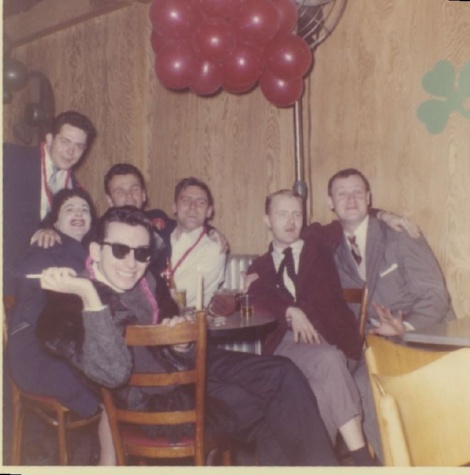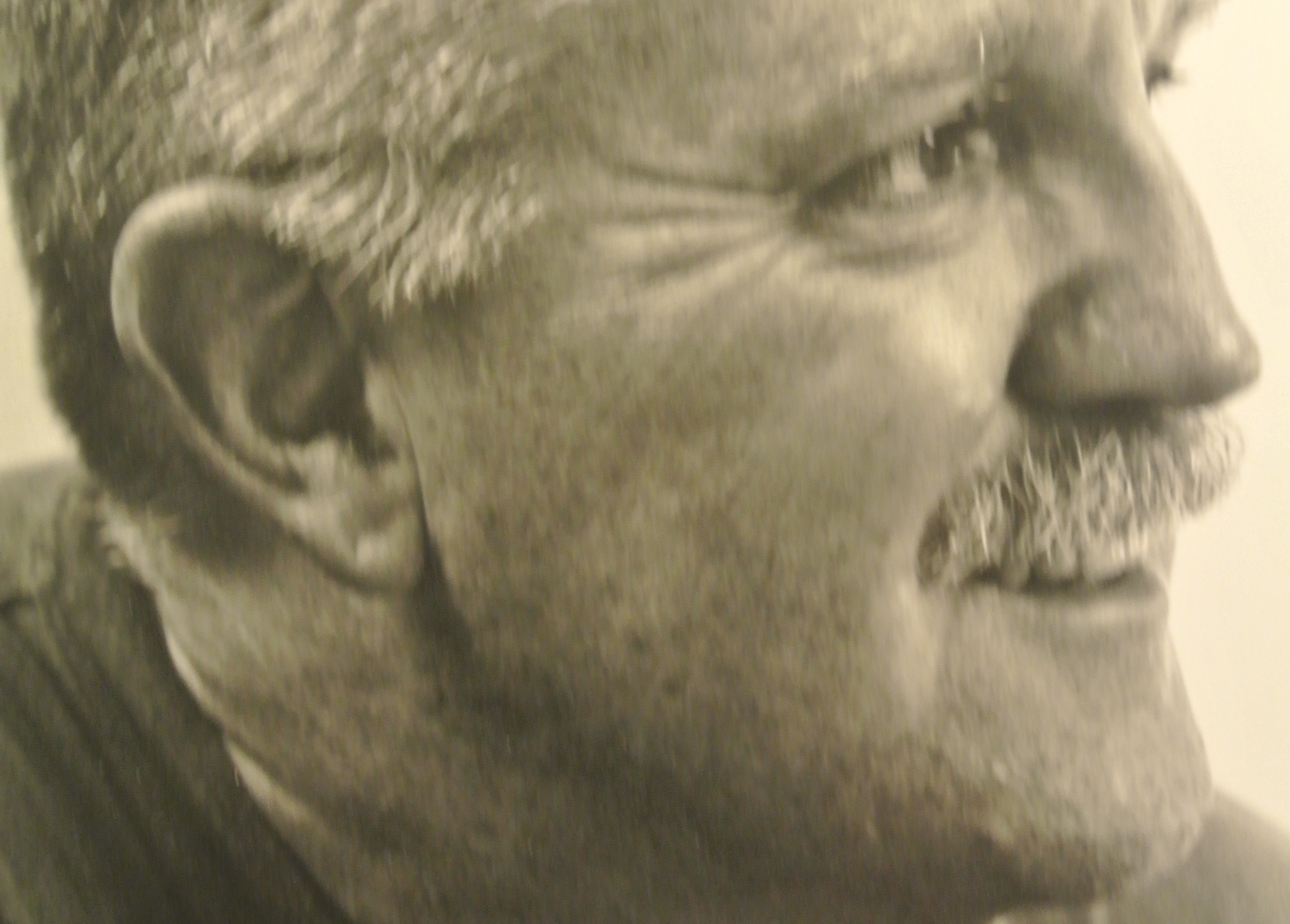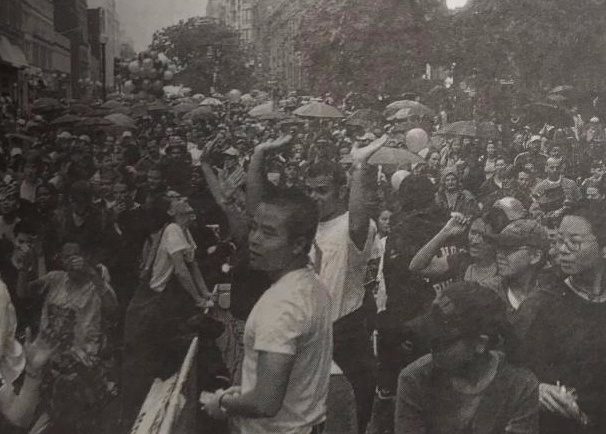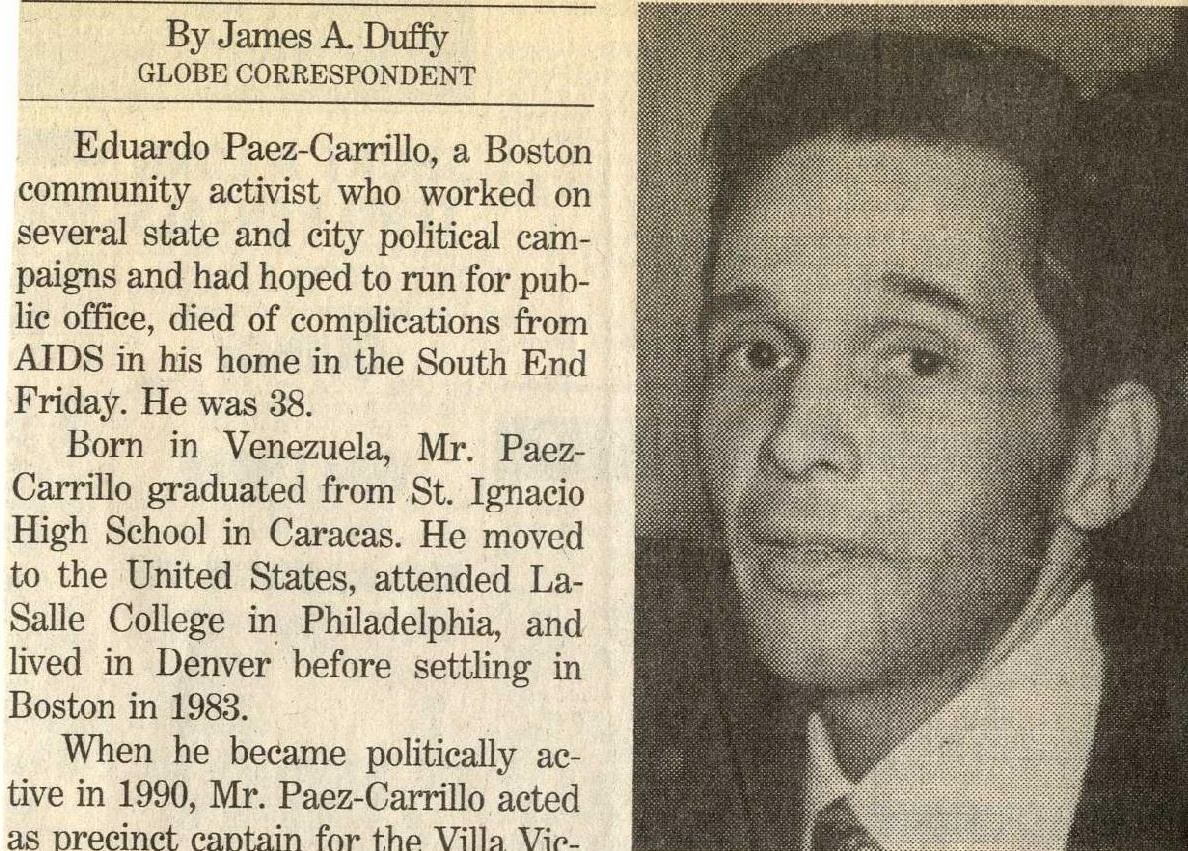Sort by:
On the Cusp of Liberation: LGBTQ Voices from the 1960s

Originally published in 2015 on Mark Krone's blog Boston Queer History.
In memory, each decade has its own gallery of pictures. Think 1960s: long-haired protesters on Boston Common, young women dancing with flowers in their hair, and across the river, the sound of drums and the sweet scent of reefer on Sunday afternoons on Cambridge Common. These images flash like news footage that gets a little grainier with each passing year.
The fragile blend of euphoria, idealism, drugs and death, which defined the hippy period, was not very long. By the time the flower children arrived in San Francisco’s Haight–Ashbury neighborhood in the Summer of Love, the decade was more than half over. Much of what we associate with the 1960s occurred in the following decade.
For the first three years – until November 22, 1963 – the prevailing ethos was still button-down and conformist. The disillusion that had boiled beneath mainstream notice for years was unleashed on that afternoon when President Kennedy was assassinated. The nation mourned its president but if the majority white, heterosexual culture had known what was coming, it might have mourned its unquestioned dominance, too.
Imagine: an entire era ended in one day and nobody knew it.
For some, this new moment meant unwanted turmoil; for others, including queer people, it was a chance for liberation. Like other members of their generation, Bill Conrad and Helaine Zimmerman took tentative steps out of the closet early on, but by the end of the decade, they had found a community. In 1969, the Stonewall Uprising was the seed that fell on a ground made fertile by people like them.
Freshly discharged from the Army in 1961, Bill Conrad, returned to a welcome-home party in Somerville thrown by his family. At 22, lean, with dark Irish looks, Conrad should have been excited about entering gay life in Boston. But he knew no gay people in his hometown and felt lost. In Berlin, Conrad had come out, dating “a beautiful German boy.” He had also made a life-long friend of another gay soldier, Carl Banks, who had more experience in the gay world. When Conrad was about to be discharged, he asked Banks how he could break into gay life when he got back home to Boston. “There were no (gay) newspapers back then. No list of gay bars. I knew nothing of gay life in Boston. Carl told me to just go downtown where the department stores were and find a gay man. I was to follow him because sooner or later, he would go to a gay bar and I would be there to see where it was.”
The morning came, and Conrad headed downtown. Sure enough, he found his man. “This queen must have hit every department store in town. I was following him in and out of stores. He was walking with all these shopping bags down Cambridge Street and entered what looked like another store, but when I got up close, it had no name.” It took Conrad a few minutes to get up the nerve to walk through the nameless door. Once inside, he knew it was a gay bar. “It was Sporters and the bartender was Bob White,” who went on to run and own several bars in town. Conrad was home. A few years later, White hired Conrad and he worked at Sporters for many years. Over the next 30 years, Conrad was a fixture in the Boston bar scene working and managing at Sporters, 1270, Buddies, and Bobby’s.
In the early 1960s, Sporters was subject to police raids every couple of months. “They’d come in and line everyone up against the wall. The youngest cop would question us, ask for IDs and call us “faggot” and other names. It was scary. If you didn’t have ID, they’d arrest you and put your name in the paper.” For many men, this meant being fired from their jobs and even evicted from their homes.
Helaine Zimmerman, a social worker in the Boston area for 50 years, spoke to the History Project in 1995 about living in Boston as a lesbian in the early 1960s. (Zimmerman was the aunt of Boston Spirit Magazine publisher, David Zimmerman. She passed away in 2013.) In 1959, Zimmerman spent a year in Greenwich Village, where she danced, made out with girls, and partied all night. But intimacy with women never went further. There was a line that she was reluctant to cross. “I figured that if I could keep it contained, I was safe. Everybody that I knew who was out, was saying ‘if you’re straight, try to be straight.’ In those days, even some out lesbians, according to Zimmerman, saw being gay as “a terrible lifestyle. They just didn’t see any future in it at all.”
In 1960, Zimmerman returned to Boston to get serious about her career and life. “I decided I would get back on the right track. I was on the wrong track in the Village, hanging out with women, going to the bars until five o’clock in the morning. I got a job at Newton-Wellesley Hospital.” Since she didn’t know any gay people in Boston, Zimmerman figured the “lesbian stage” of her life was over. For a few months, things went as planned; Zimmerman settled in at her job and began dating some men she knew in high school.
“One night, I went to the Charles Playhouse with a friend and we were upstairs in a lounge and I saw people walking downstairs and they were gay. And I (thought) this is interesting, so I excused myself and said I was going to the ladies room. I went downstairs and opened the door and there were all these ‘Mafia’ guys standing there. I said I just wanted to take a peek. Well, that was the Midtown. There were hundreds of gay people in there and I thought, now I am really sunk. I knew I’d go back. I went back the next night.”
The Midtown welcomed men and women. Zimmerman described the lesbian scene as “very defined, either you were a butch or a fem.” She did not really identify with either but when she was confronted by a “butch” who asked what she was, Zimmerman said, “Well, since I have shorter hair then my friend, I guess I am butch.” According to Zimmerman, working class and poor women were more likely to classify into the strict roles of butch or fem then middle or upper class women. Since Helaine and her friends did not fit into either category, “the butches called us ‘the Beacon Hill crowd’ because they didn’t understand us.”
Like Sporters, police sometimes paid a visit to the Midtown. “They used to flash the lights in the bar when the police came in. You had to switch partners (on the dance floor) in one second, woman to man. It was always touch and go about the cops coming in and raiding the place.”
By the late 1960s, the sheer number of Baby Boom queer people made them more visible on Boston’s streets and clubs. At Sporters, the police raids stopped and it became the place to be. Recalls Conrad, “Sporters was perfectly positioned to attract the gay college crowd. MIT and Harvard were a few stops away on the Red Line. It was packed seven nights a week. It was really my home during those years… For me 1965-75, were the best years at Sporters.”
By 1964, Helaine Zimmerman had moved away from her family in Newton to an apartment on Beacon Street. It was at this time that she had her first romantic relationship with a woman. It lasted five years. “I still didn’t tell most people. I never told my parents (that I was gay).” Zimmerman did not come out at work until 1987. “People don’t realize it was a very different time.”
In the mid to late 1960s, Zimmerman and her friends went to Vicki’s and Cavana’s, two lesbian bars on Tremont Street with tough reputations. “Vicki would sit on a high stool and survey the crowd for troublemakers. The customers could get out of hand in a hurry. At the drop of a hat, they’d throw a beer bottle.”
In looking back, Zimmerman wondered what ever happened to the “butches” she met in the bars. “When Somewhere opened, I thought I’d see them. But I never saw them in there and never saw them in the Saint.”
House parties were an important place for socializing in the 1960s, especially for lesbians. They offered fun without the scrutiny and potential danger of the bars. Zimmerman attended parties hosted by women in Dorchester, Jamaica Plain and Cambridge. My friend Alice would say, ‘I’m having a party with all the fags and the dykes…’ and we’d just dance and it was hilarious. There was a real camaraderie …there wasn’t a separation between the men and the women. I loved it.”
Zimmerman missed the old days when people danced instead of dined. After a pause, she said, “the world got more serious, don’t you think?”
Top Related Stories
Rudy Kikel: Boston Poet Who Influenced How A Generation Saw Itself
Originally published in Boston Spirit Magazine January/February 2013, and on Mark Krone's blog Boston Queer History [...]
Originally published in Boston Spirit Magazine January/February 2013, and on Mark Krone's blog Boston Queer History [...]
Bulletin: Thinking of Boston Pride and Remembering Vin McCarthy (April 2020)
As we heard the unfortunate news that Boston Pride was postponing its 2020 celebration, many of [...]
As we heard the unfortunate news that Boston Pride was postponing its 2020 celebration, many of [...]
Bulletin: World AIDS Day (December 2019)
Sunday, December 1 was World AIDS Day. For those of us who lived through the years [...]
Sunday, December 1 was World AIDS Day. For those of us who lived through the years [...]


